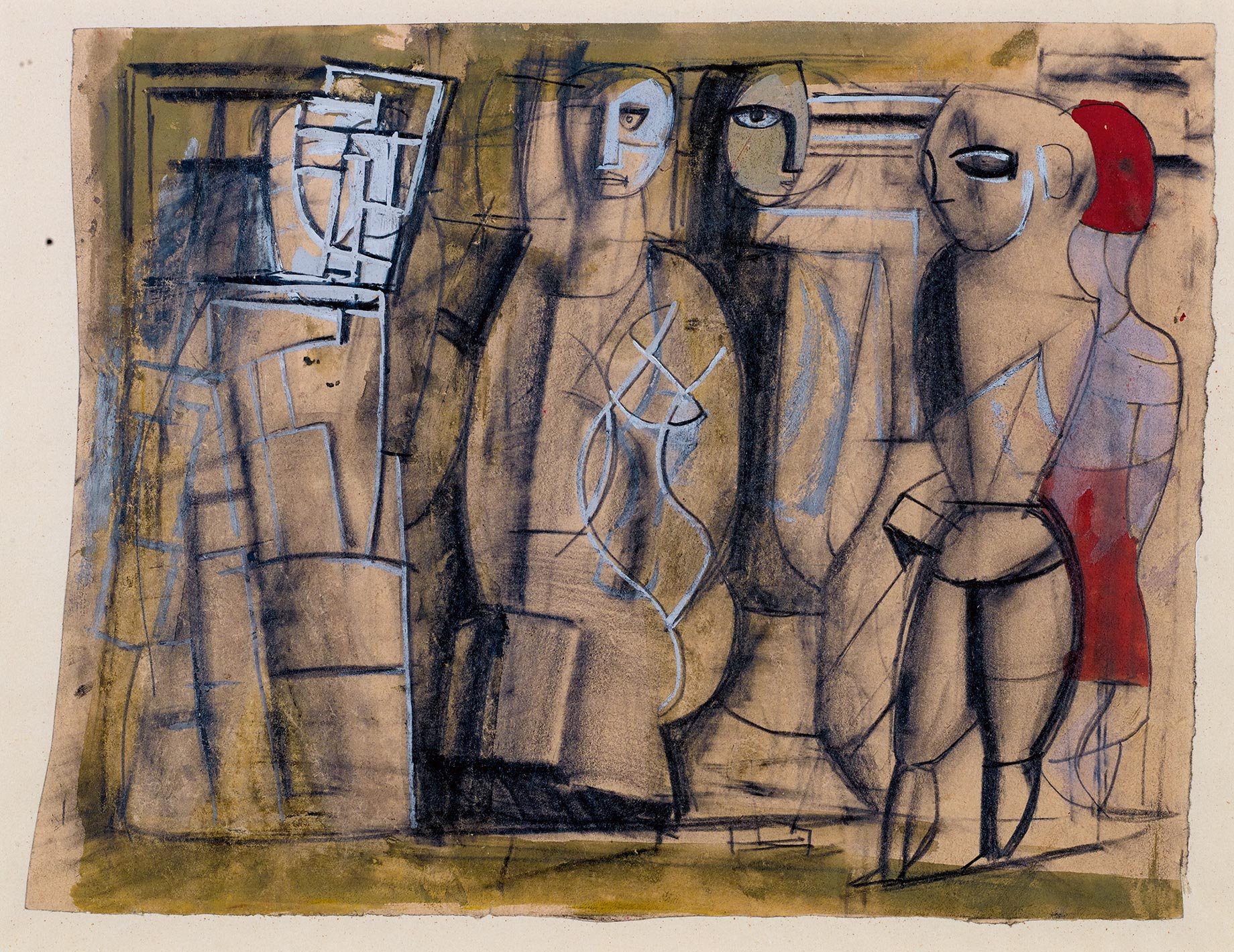
The All & Not-All (Part III)
Presentations by Après-Coup members Lillian Ferrari, Peter Gillespie, and Andrew Stein, and moderated by Kareen Malone

The Autistic Signature — Isabelle Orrado and Jean-Michel Vives
Autistic subjects live in the grip of the real, facing an invasive jouissance and a threatening Other not yet symbolized. Yet in their bricolage, or tinkering, they devise a way to relate to that real, a singular style for inscribing themselves in the world. If Freud conceived psychotic delusion as an attempt at healing, or the neurotic symptom as a compromise formation, we can identify in the autistic difference a solution found by the subject. Clinical examples will be discussed, and we will learn to read this subject’s signature, strange as it may appear.

On the One and the Pas-Tout: The Analytic Act (Part III)
Pursuing our reflections on the relations between the subject and the collective, and the discourses that organize them, this seminar focuses on the function of the One and the logic of the pas-tout in the analytic discourse. In light of the uniqueness of each analytic act, we will address the relation between universal, particular, and singular in the analytic field, as well as the logical times that mark the unfolding of the treatment - its beginning, the steps-in-the-act and the end of an analysis.

Freudian vs. Aristotelean Logic — André Michels
To determine the position of psychoanalysis in relation to modern science, it is crucial to return to the logic at stake in Freud’s invention, most clearly exposed in his writings on dreams, wit, and slips of the tongue. Lacan’s return to Freud continually examined psychoanalysis as a logical procedure undermining the principle of contradiction (or non-contradiction) expounded by Aristotle. Focusing on the signifier, the phantasm, and the Borromean knot, we will contrast psychoanalytic logic with the psychologism implicit in the social and political sciences that pervades almost all aspects of modern life.

The Fantasm, between Desire and Jouissance — Alain Vanier
The phantasm responds to the question of the Other's desire, and thus the subject’s desire, by articulating subject and object, signifier and jouissance. It is a screen to the Real, and therefore crucially at stake at the end of the treatment, opening onto another mode of jouissance.
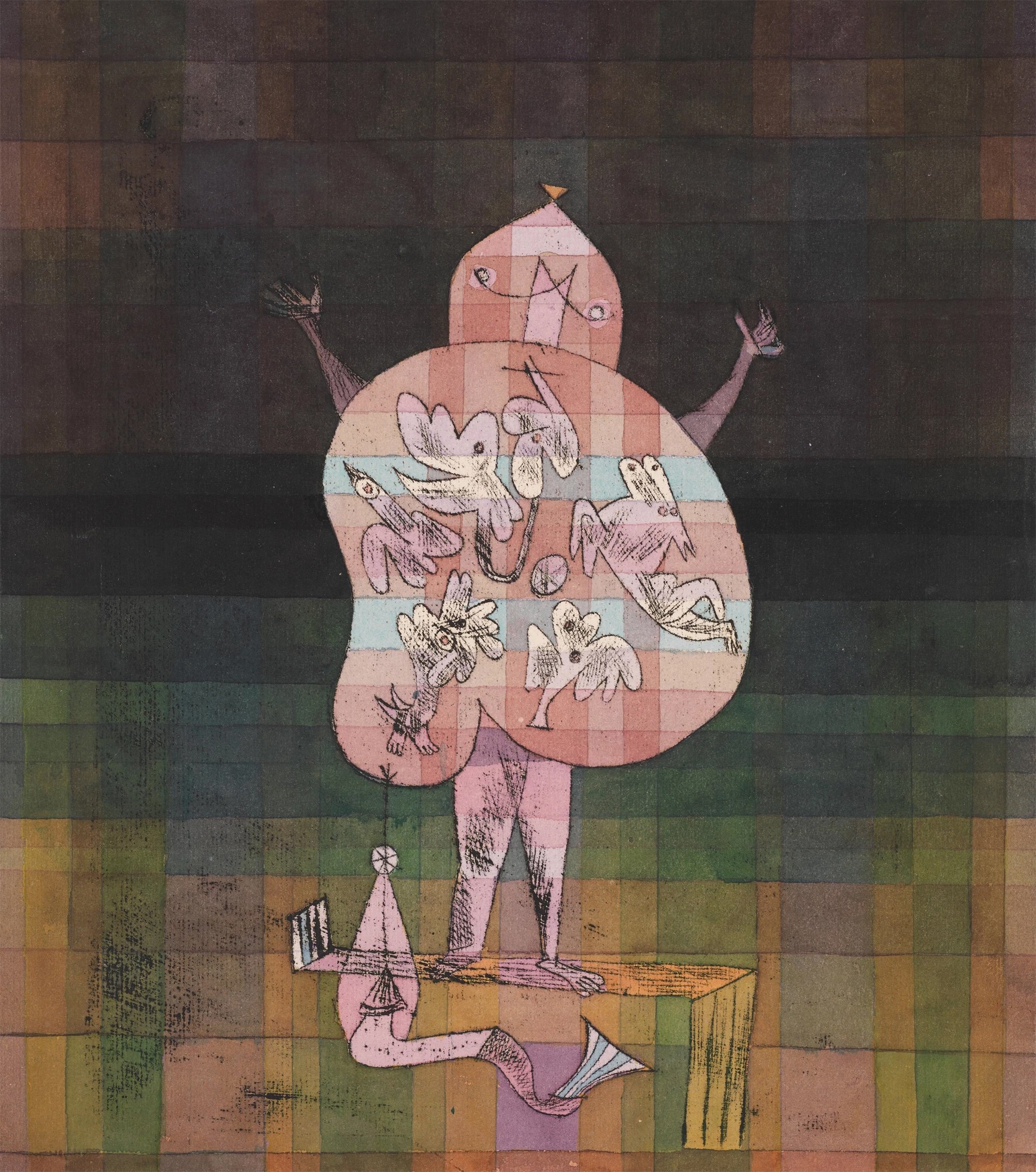
Are There No More Psychotic Children? — Catherine Vanier
The DSM tells us that child psychosis no longer exists. Structures are erased and replaced by symptoms, categorized into “disorders.” The “handicapped” child requires exclusively rehabilitative care. Through clinical examples, we'll see how, for psychoanalysis, the diagnosis of psychosis retains all its relevance, even if the identification of structures is complicated by the patient's age. Following the teachings of Freud and Lacan, we’ll find our way through the constitution of structure, of fantasy, and the place of the child in its relationship with the Other and with reality.

On the One and the Pas-Tout: The Analytic Act (Part III)
Pursuing our reflections on the relations between the subject and the collective, and the discourses that organize them, this seminar focuses on the function of the One and the logic of the pas-tout in the analytic discourse. In light of the uniqueness of each analytic act, we will address the relation between universal, particular, and singular in the analytic field, as well as the logical times that mark the unfolding of the treatment - its beginning, the steps-in-the-act and the end of an analysis.

Lacan, Pearl King, and the IPA: Clinical and Political Implications
A Workshop with Nicolas Guérin and Manuel Hernández

On the One and the Pas-Tout: The Analytic Act (Part III)
Pursuing our reflections on the relations between the subject and the collective, and the discourses that organize them, this seminar focuses on the function of the One and the logic of the pas-tout in the analytic discourse. In light of the uniqueness of each analytic act, we will address the relation between universal, particular, and singular in the analytic field, as well as the logical times that mark the unfolding of the treatment - its beginning, the steps-in-the-act and the end of an analysis.

Logical Time of the Phantasm — Erik Porge
How does the incorporation of the signifiers determining the subject and their sedimentation as letters take place? The expression “eating the book” borrowed and promoted by Lacan offers one approach to this question.

Lacanian Marxism? The Impact of Marx on the Development of Lacan’s Thought—David Pavón-Cuéllar
Much has been written about Lacan’s Marx, about the way in which Lacan reads Marx, appropriates his ideas and reinvents them, transforming and Lacanizing them. What is not so clear is the impact of Marx on the development of Lacan’s thought and especially the way in which Lacan was Marxized, transformed and possessed by Marx, to the point of engendering a kind of Marxist who would certainly not be recognized as such by his followers.

On the One and the Pas-Tout: The Analytic Act (Part III)
Pursuing our reflections on the relations between the subject and the collective, and the discourses that organize them, this seminar focuses on the function of the One and the logic of the pas-tout in the analytic discourse. In light of the uniqueness of each analytic act, we will address the relation between universal, particular, and singular in the analytic field, as well as the logical times that mark the unfolding of the treatment - its beginning, the steps-in-the-act and the end of an analysis.

Coming from Matter: On Artaud’s Recreation of the World — Raffaella Colombo
Ever since Deleuze and Guattari brought attention to it, Artaud’s concept of a “body without organs” (from his 1947 play To Have Done with the Judgment of God ) has been overused as a metaphor for individual and collective rebellion. Yet many other lessons remain in his “absolute materialism” and the painful, powerfully revolutionary conflict he waged with the pervasive presence of matter — from physical objects to the soul, thoughts, and even God.
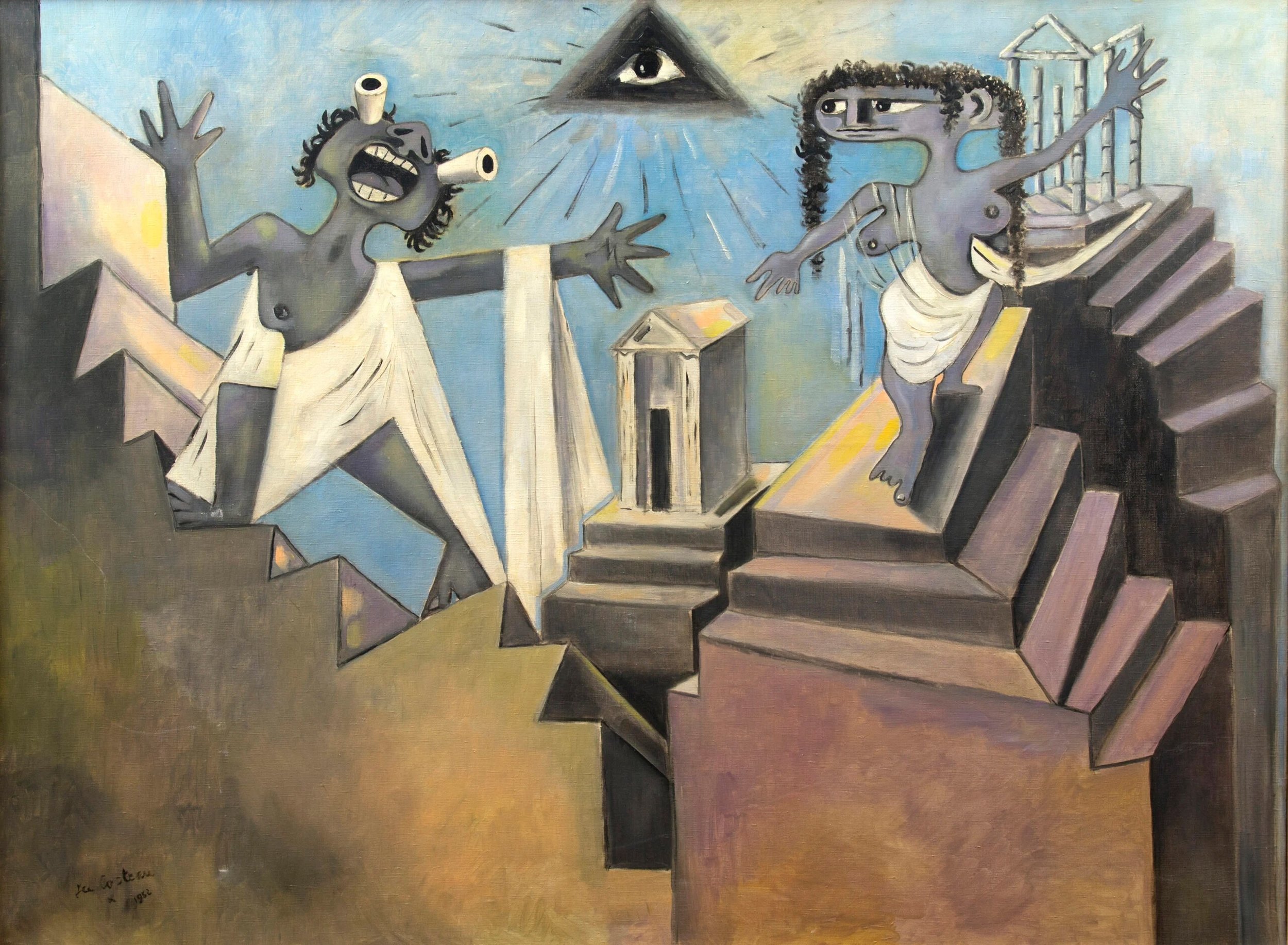
The Name-of-the-Father and the Cause of Desire — Paula Hochman
The Name-of-the-Father articulates the structure that gives rise to the subject, formed by the Real, the Symbolic, and the Imaginary. According to Lacan, its function acquires respectability and authority by binding its name to a desire-causing object. We will examine the intrinsic relation between the law and desire.

Traces of Writing—Nora Sigal
In this book, the author explores how literature has contributed to the theory of psychoanalysis. The function of writing, the literary text, the inscription, and the letter are part of this book’s interrogation, proposing the act of writing as a way to delineate a border with truth.

Then and Now: On the Crowd, the Subject, and the Collective
This collection of essays offers some novel reflections on the nature of the crowd, the collective, and the subject’s relation to the social link. Prompted mainly by Freud’s Group Psychology and Analysis of the Ego, the authors analyze crucial issues ranging from La Boétie’s late Renaissance theory of voluntary servitude to the early 20th-century Europe’s collapsed empires and revolutionary uprisings, to progressive South Africans’ turn to segregationism, to Bolsonaro’s adoption of Nazi rhetoric.

The Siren Song of War — Betty Berardo Fuks
As global armed conflict seems once more imminent, we will examine from this perspective the articulation between psychoanalysis and politics. We will return to Freud’s thought on impending war, and consider how psychoanalysis can trace an ethico-political trajectory that dissipates violence and cruelty.
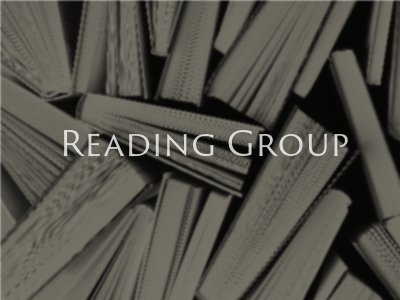
On Object a as Voice — Lillian Ferrari (first meeting)
Lacan traced his object a as voice in several clinical phenomena within each of the psychic structures: the presence of voices in psychosis, the function of the Superego in neurosis, masochism in perversion. This working group will follow some of these articulations by reading selected chapters from Lacan’s Seminars: III, The Psychoses; X, Angst; XII, Crucial Problems for Psychoanalysis; and XVI, From an Other to the other .

On the Clinic of Psychosis — Guy Dana
In addition to a long-time concern with framework and setting, an ensuing search for new institutional strategies in treating psychoses leads to a proposal of two orientations: one based on translation and the other on the concept of perspective. The invention of perspective in the realm of pictorial representation may serve as a desirable model for analytic work with psychosis.

Freud’s Two Forms of Chance — Guy Dana
Freud put forward two different views of chance: “I believe in external (real) chance, but not in internal (psychic) chance. This is the opposite of superstitious.” Freud’s formula, which neatly divides a chance that exists and another that doesn’t, brings about the confrontation between the fundamental rule and unconscious causality, which implicitly offers us a valuable key to analytic technique and the articulation of the analytic act.
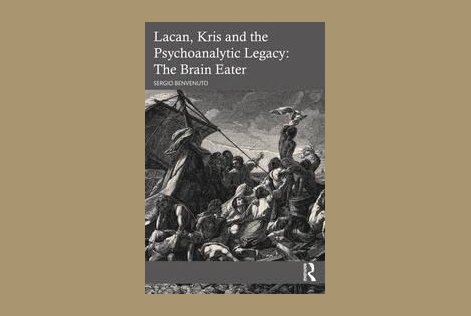
Lacan, Kris and the Psychoanalytic Legacy: The Brain Eater — Sergio Benvenuto
The case of “Professor Brain” was written about by three important psychoanalysts, in three different languages: in German in 1934 by his first analyst, Melitta Schmideberg; in English in 1948 by his second analyst, Ernst Kris; and in French by Jacques Lacan, who referred to it several times, starting in 1954, in his Seminars and his Écrits. “Professor Brain” was convinced he was forced to plagiarize the ideas of others, and for this reason was unable to publish his own research.

Preliminary Questions for Any Possible Treatment of Psychosis — Adriana Passini (first meeting)
“For psychosis to be triggered, the Name-of-the-Father — verworfen, forclosed, that is, never having come to the place of the Other — must be summoned to that place in symbolic opposition to the subject.” (Lacan, Écrits, p. 577; Norton edition, p. 481)

Observing the Voices — Daniel Heller-Roazen
In his dialogue On Divination, Cicero writes that the Pythagoreans cultivated the practice of “observing voices”: “not only the voices of the gods but also those of men, which they named ‘omens.’” Building on discussions at Après-Coup in 2022 and 2023, this presentation will explore the conditions in which sudden speech events have become objects of attention in ritual, literature, psychiatry, and psychoanalysis, yielding insights into omens, slips, and epiphanies.

Freud Reading Group — Mark Stafford and Martin Winn (first meeting)
We will continue our reading of Freud’s clinical and historical cases, paying attention to the significant decisions made when Freud’s concepts were translated into English. We will also read Freud’s metapsychological papers and theoretical elaborations.

On Clinical Work with Children — Angelo Villa (first meeting)
The doubts arising out of today's clinical work with children force us to thoroughly question our therapeutic practice. This reading group returns to the conceptual assumptions of psychoanalysis through a study of the canonical texts of child analysis, from Freud to Klein, from Winnicott to Lacan. Participants are invited to provide examples from their own clinical experience with children (required).

Where Do the Unconscious and Politics Meet?—Gisèle Chaboudez
Lacan countered the long-disputed biologism of Freud’s “anatomy is destiny” with “the unconscious is politics.” Yet he never separated what the unconscious elaborates from real bodies, for instance of sexual organs in their copulation, with regard to their defective sexual jouissance. Noting that what is called the sexual relation, le rapport sexuel, precisely is not one, and that something else has been substituted in it, something he termed plus de jouir, we can surmise that it’s there that politics begins.

The Feminine Deal — Gisèle Chaboudez
For the past twenty-five years, Gisèle Chaboudez has been rigorously interpreting and writing on Lacan’s concept of the sexual non-relation. For millennia the sexual law that universally defines “man as the one who has and woman as the one who is what he has” has masked and compensated for the absence of sexual relation, while generating a myriad of subjective and social effects. The feminine side of sexuation, which can be occupied by any gender, introduces the logic of the Not-all, creating the possibility for two jouissances to be shared in a singular and inventive way.
Dates to be announced
Psychoanalysis in the Institution — Ona Nierenberg
This clinical group will be oriented to the unique challenges and opportunities we encounter in hospitals, clinics, prisons, treatment programs, schools, and other institutions. We will explore the often surprising possibilities the analyst has to create and sustain space for the singular even in settings dominated by claims to the universal. Open to those currently working clinically in or with institutions.

